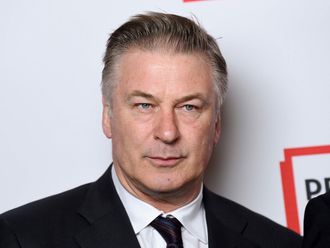Guy Pearce and Robert Pattinson star in this Australian dystopian crime drama from director David Michod.
Fusing a number of quasi-apocalyptic influences into a hybrid work with a pungent character of its own, The Rover suggests something like a Cormac McCarthy vision of Australia halfway between today and The Road Warrior era.
David Michod’s follow-up to his internationally successful debut, the Melbourne gangster saga Animal Kingdom, is equally murderous but more pared down to basics, as desperate men enact a survival-of-the-meanest scenario in an economically gutted world reduced to Old West outlaw behaviour.
As recycled as many of the individual images here may be — its forbidding, lifeless landscapes are populated almost entirely by bloodied, grizzled, sweaty men with guns — Michod has nonetheless developed a very specific setting for his elemental drama. It’s a time “10 years after the collapse,” when, from the evidence, the Australian economy has gone south and locals are reduced to scavengers while Asian mining interests control the purse strings.
With all these grim geopolitical conditions serving as backdrop, the foreground action is as elemental as that of a thousand old Hollywood Westerns. While taciturn loner Eric (Guy Pearce) makes a pit stop in a ratty Asian roadside lounge, three desperate characters — nasty old Archie (David Field), young black man Caleb (Tawanda Maryimo) and hot-headed American Henry (Scoot McNairy) — ditch their pickup truck and steal Eric’s sedan. Jumping into the pickup, an incensed Eric gives chase and, after an unusual stop-and-start pursuit, ends up very much the worse for wear.
As freshly staged as it is, this scene-setter annoys with its numerous dramatic implausibilities: Why, for instance, do the bandits prefer Eric’s car to their own? But these distractions are soon kicked to the side of the road by the appearance of the badly wounded Rey (Robert Pattinson), Henry’s younger brother, who was left behind after a gun battle. Frazzled and fried, Rey speaks in a halting, fractured manner that suggests he might not be quite all there upstairs. But he wants to get Henry, so he and Eric, men near the end of their respective ropes, head further into the outback to settle some scores with mutual nemeses.
It’s a journey that writer-director Michod, who developed the story with actor Joel Edgerton, uses to explore a multitude of extremes — of desperation, soullessness, viciousness and environmental hostility. If one imagines for a moment that Eric is going to become something resembling a sympathetic protagonist, such notions are dashed the moment he needlessly kills a tough little person who’s selling him a gun. The most friendly and humane character to turn up in the entire film, a warm-hearted woman (Susan Prior) who reflexively calls Eric “sweetheart,” doesn’t last long either after he enters her sphere.
As the two men scour the countryside looking for Henry and his cohorts, Eric messes with Rey’s head, insisting that his brother left him to die and otherwise playing on the vulnerabilities of a sensitive but mentally challenged hick who almost could have stepped from the pages of a William Faulkner novel. His stubble, dirty yellow teeth and injuries muting his physical beauty, Pattinson delivers a performance that, despite the character’s own limitations, becomes more interesting as the film moves along. But always commanding attention at the film’s centre is Pearce, who gives Eric all the cold-hearted remorselessness of a classic Western or film noir antihero who refuses to die before exacting vengeance for an unpardonable crime.
At least as responsible for giving The Rover its distinctive tone as the unnerving violence, edgy performances, parched settings and Natasha Braier’s superior cinematography (film, not digital, was the medium of choice) is Antony Partos’ extraordinary soundtrack, which, in its wild, idiosyncratic weirdness, is probably the most effectively eccentric and radical film score since Jonny Greenwood’s for There Will Be Blood.












